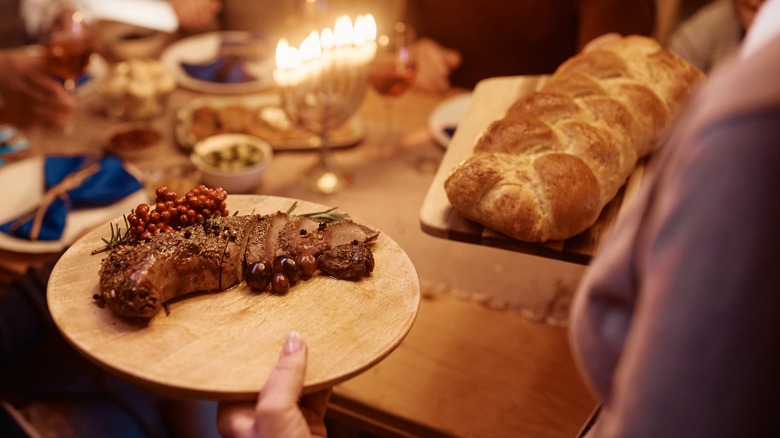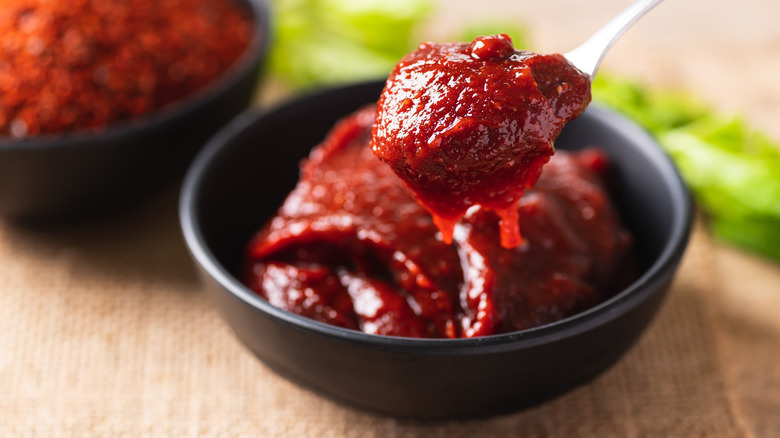The Korean Ingredient That Ups The Umami In Your Hanukkah Brisket
We may receive a commission on purchases made from links.
While brisket is a traditional dish to serve during the Jewish high holidays, such as Rosh Hashanah or Passover, it also makes a wonderful addition to the Hanukkah table. But since it's served several times a year, you may want to give the traditional red wine-braised recipe a rest and try something new. One easy way to give your Hanukkah brisket a new twist is to swap the wine for a beloved Korean sauce called gochujang.
Gochujang is a fermented red chili paste that is used as a marinade, glaze, and condiment in Korean dishes such as bibimbap. Adding a few teaspoons to your braising liquid will give a little kick to the brisket meat thanks to the chili peppers, and will provide a more complex depth of flavor. Because while gochujang has a bit of heat and is known as a chili sauce, it's so much more than that. It's fermented with red chili peppers, glutinous rice, fermented soybeans, and salt, giving it an umami, savory, and slightly sweet flavor profile. When used to braise brisket, it imparts these complex, aged flavors into the meat, and takes on new flavors as it mingles with fat, protein, herbs, and broth. Luckily, for those wanting to add gochujang to their Hanukkah brisket, there are several mainstream brands that are certified Kosher such as Koko Gochujang, and O'Food.
How to use gochujang in your brisket recipe
The easiest way to incorporate gochujang into your brisket is to replace the wine with a combination of the paste and beef broth. It's important to determine just how much heat you want to come through in your brisket. Some folks mistake gochujang for sriracha, assuming it's similarly spicy, but gochujang can actually be enjoyed by those who consider themselves spice-intolerant. Add 1-2 teaspoons to the braising liquid if you want just a little warmth in the sauce, but mostly want to be able to taste the umami flavors of the beef and fermented ingredients. If you're seeking a bit more pop from the chili peppers, add 3-5 teaspoons, but not much more lest you overwhelm the tender meat. As is key to any good brisket, ensure that it has plenty of time to slow cook so the meat can be fully exposed to the gochujang-infused braising liquid.
While gochujang can be used as a part of marinades, we don't recommend doing this on brisket. The glaze will burn during the searing process, and you'll be left with burnt chili paste instead of caramelized meat.
If your party is divided on how much gochujang flavor they want, you can make a quick glaze. Once the brisket is done cooking, take some of the excess braising liquid, mix it with a few teaspoons of gochujang, and drizzle over the top of your brisket portion.

